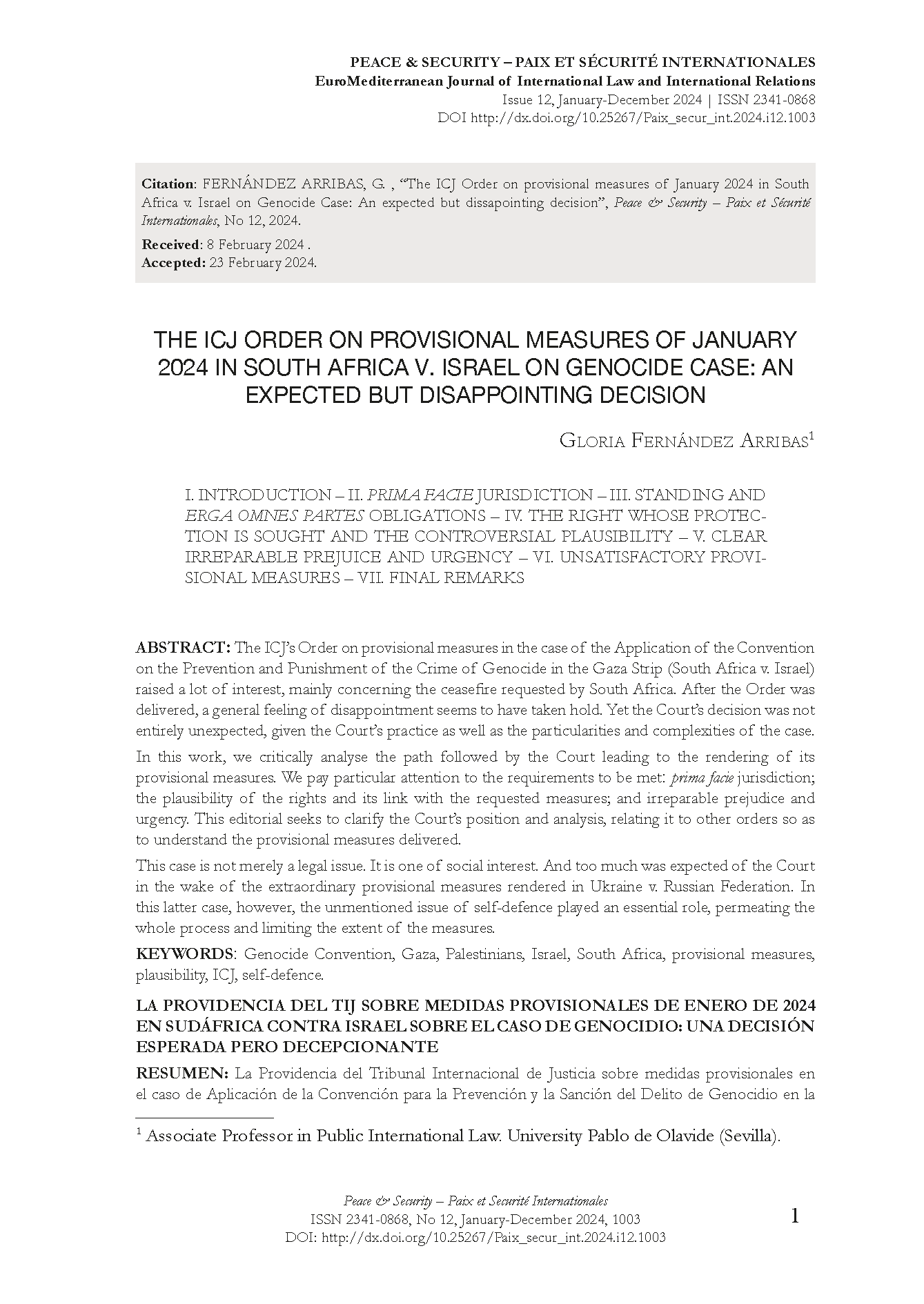The ICJ Order on provisional measures of January 2024 in South Africa v. Israel on Genocide Case: An expected but disappointing decision
Abstract
The ICJ’s Order on provisional measures in the case of the Application of the Convention on the Prevention and Punishment of the Crime of Genocide in the Gaza Strip (South Africa v. Israel) raised a lot of interest, mainly concerning the ceasefire requested by South Africa. After the Order was delivered, a general feeling of disappointment seems to have taken hold. Yet the Court’s decision was not entirely unexpected, given the Court’s practice as well as the particularities and complexities of the case.
In this work, we critically analyse the path followed by the Court leading to the rendering of its provisional measures. We pay particular attention to the requirements to be met: prima facie jurisdiction; the plausibility of the rights and its link with the requested measures; and irreparable prejudice and urgency. This editorial seeks to clarify the Court’s position and analysis, relating it to other orders so as to understand the provisional measures delivered.
This case is not merely a legal issue. It is one of social interest. And too much was expected of the Court in the wake of the extraordinary provisional measures rendered in Ukraine v. Russian Federation. In this latter case, however, the unmentioned issue of self-defence played an essential role, permeating the whole process and limiting the extent of the measures.
Keywords
Downloads
How to Cite
License
Copyright (c) 2024 PEACE & SECURITY-PAIX ET SÉCURITÉ INTERNATIONALES (EuroMediterranean Journal of International Law and International Relations)

This work is licensed under a Creative Commons Attribution-NonCommercial 4.0 International License.
Copyright
Es condición para la publicación que el autor o autores ceda(n) a la Revista, en exclusiva, los derechos de reproducción. Paix et Sécurité Internationales es una revista que proporciona un acceso abierto inmediato a su contenido totalmente gratuito para lectores como para los investigadores que pretendan publicar en ella, ya que no se realizan cobros por concepto de envío, procesamiento ni publicación. Los usuarios podrán leer, descargar, copiar, distribuir, imprimir, buscar o enlazar el texto completo de los artículos publicados, o utilizarlos para cualquier otro propósito, dentro de la legalidad vigente. Y podrán hacerlo sin coste alguno, y sin necesitad de solicitar permiso al editor a al autor. Todo ello de acuerdo con la definición de acceso abierto de la Iniciativa Acceso Abierto de Budapest.







